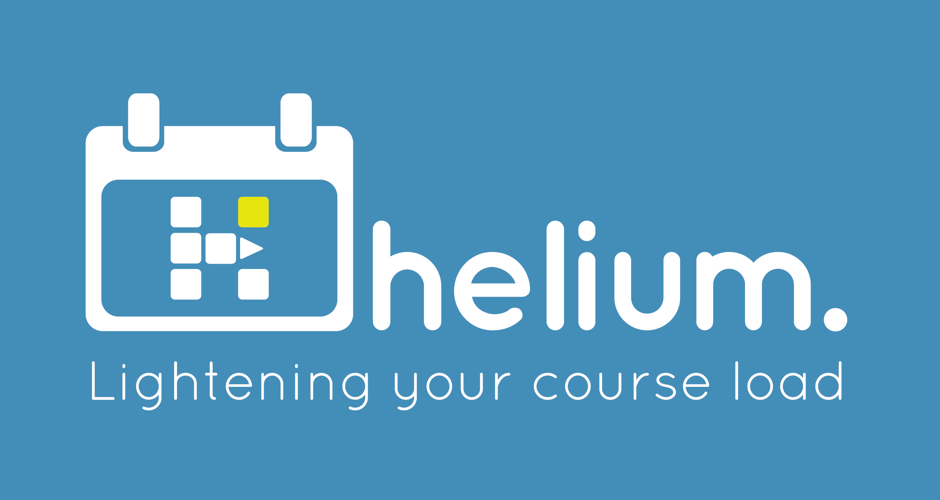https://github.com/heliumedu/platform
Django backend of Helium's planner application
https://github.com/heliumedu/platform
api backend calendar django django-rest-framework docker education planner python student
Last synced: 8 months ago
JSON representation
Django backend of Helium's planner application
- Host: GitHub
- URL: https://github.com/heliumedu/platform
- Owner: HeliumEdu
- License: mit
- Created: 2017-11-20T01:01:17.000Z (about 8 years ago)
- Default Branch: main
- Last Pushed: 2025-05-06T20:17:24.000Z (8 months ago)
- Last Synced: 2025-05-07T12:13:36.712Z (8 months ago)
- Topics: api, backend, calendar, django, django-rest-framework, docker, education, planner, python, student
- Language: Python
- Homepage: https://www.heliumedu.com
- Size: 8.13 MB
- Stars: 20
- Watchers: 2
- Forks: 4
- Open Issues: 0
-
Metadata Files:
- Readme: README.md
- License: LICENSE
Awesome Lists containing this project
README


[](https://codecov.io/gh/HeliumEdu/platform)
[](https://github.com/HeliumEdu/platform/actions/workflows/build.yml)
[](https://app.codacy.com/gh/HeliumEdu/platform/dashboard?utm_source=gh&utm_medium=referral&utm_content=&utm_campaign=Badge_grade)

# Helium Platform Project
## Prerequisites
- Docker
- Python (>= 3.12)
- MySQL (>= 8)
- Redis (>= 5)
## Getting Started
The `platform` is developed using Python and [Django](https://www.djangoproject.com).
This project is configured to work with a [Virtualenv](https://virtualenv.pypa.io/en/stable) within a
[Docker](https://www.docker.com/) container. Once provisioned, development can be done offline, as the container built
for development includes [LocalStack](https://www.localstack.cloud/) to emulate AWS services locally.
## Development
### Docker Setup
To provision the Docker container with the Python/Django `platform` build and all dependencies, execute:
```sh
bin/runserver
```
This builds and starts two containers, one for the API (named `helium_platform_api`), and one for the Worker
(named `helium_platform_worker`). Once running, the `platform` API is available at http://localhost:8000, and the
`platform` Worker is running to execute async and scheduled tasks. The shell of containers can be accessed using their
name, like:
```shell
docker exec -it platform-api-1 /bin/bash
```
Inside the `platform` container, you can run Django commands against the app, like:
```sh
python manage.py migrate
python manage.py createsuperuser
```
### Project Information
The `platform` is split up into several modules, all contained within this repository. The base configuration is
defined under `conf`. The applications within this project are:
- auth
- common
- feed
- importexport
- planner
There are also some special environment variables that can be set in development or deployment of the project:
- `ENVIRONMENT`
- `dev-local` provisions hosts as `localhost`
- `local` provisions hosts as `localhost` for use outside of Docker (ex. when using Django's `runserver` command)
- `prod` provisions hosts to be suffixed with `heliumedu.com`
- Any other env name provisions a prod-like hostname with `.` as the prefix
- `PLATFORM_BEAT_MODE`
- Set to `True` to start a Beat scheduler (only one should ever be running in the fleet) instead of a Worker when launching from [Celery](https://docs.celeryq.dev/en/stable/getting-started/introduction.html)
- `USE_AWS_SECRETS_MANAGER`
- Set to `True` to use AWS Secrets Manager before falling back to environment variables
- `USE_NGROK`
- Set to `True` to have [pyngrok](https://github.com/alexdlaird/pyngrok) open a `ngrok` tunnel and provide a real hostname (only works when `ENVIRONMENT` is not `prod`
These and other environment variables can be configured in the `.env` file. This is also where credentials to
third-party services (for example, AWS services like SES) can be set. Do NOT commit real credentials to third-party
services, even in example files.
Before commits are made, be sure to run tests and check the generated coverage report.
```sh
make test
```
### Frontend
The `frontend` is served from a separate repository and can be found [here](https://github.com/HeliumEdu/frontend#readme).
Using Docker, the `frontend` and `platform` containers can be started alongside each other using to almost entirely
emulate a prod-like environment locally using [the deploy project](https://github.com/HeliumEdu/deploy). For
functionality that still requires Internet-connected external services (ex. emails and text messages), provision
[the `dev-local` Terraform Workspace](https://github.com/HeliumEdu/deploy/tree/main/terraform/environments/dev-local),
which is meant to work alongside local Docker development.
Note that the `frontend` was previously bundled, rendered, and served as a part of this project, but it was pulled out
into its own project with the with `1.4.0` release. For reference, checkout the `1.3.8` tag or download it [here](https://github.com/HeliumEdu/platform/releases/tag/1.3.8)
to see how this was previously done.
### Documentation
Auto-generated API documentation is accessible via any environment at /docs. Additional documentation can be found
on the [Platform Wiki](https://github.com/HeliumEdu/platform/wiki/Helium-Platform-Documentation).